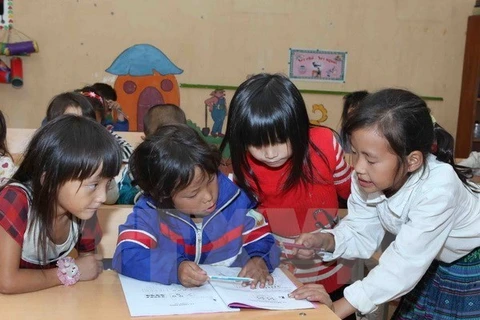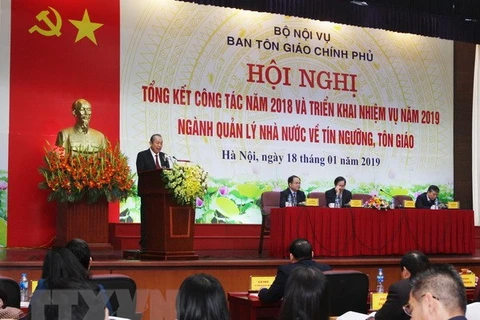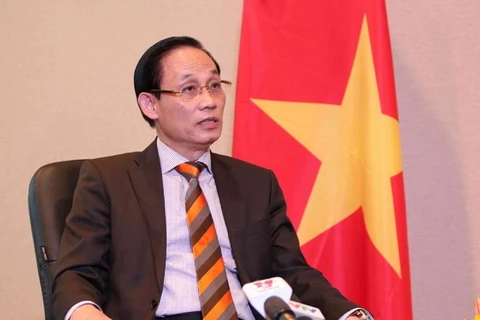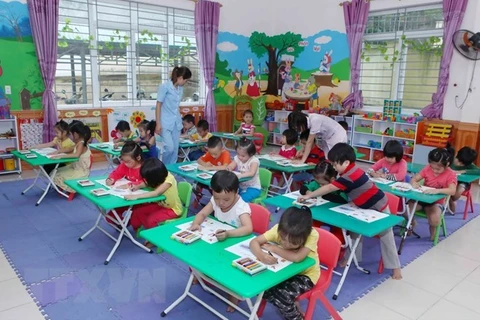Hanoi (VNA) – Vietnam has been working unceasingly to build a state of the people, by the people and for the people by improving legal regulations relevant to human rights.
Respecting, protecting and promoting human rights have been reflected in Vietnam’s development strategies and policies, the judicial reform strategy, as well as the implementation of international obligations and commitments to which Vietnam is a party, including recommendations of the United Nations’ Universal Periodic Review (UPR).
Doan Cong Huynh, Director of the Authority of Foreign Information Service under the Ministry of Information and Communications, said in recent years, Vietnam has made strong efforts and obtained many achievements in perfecting its law system on human rights, carrying out international recommendations about human rights such as those of the UPR, and realising development programmes.
The 2013 Constitution, adopted on November 28, 2013 and taking effect on January 1, 2014, has an exclusive chapter on human rights and citizens’ rights and obligations. This chapter inherited and developed previous regulations on human rights and citizens’ rights in line with international standards.
[Infographics: Vietnam's achievements in guaranteeing human rights]
Compared to the previous version issued in 1992, the 2013 Constitution expanded the content about rights with specific articles on the right to equality and non-discrimination before the law; the right to freedom from torture, violence, degrading treatment or any other forms of treatment that violate citizens’ bodies, health, honour or dignity; the right to respect for private life; and the right to access to information; among others.
It also enshrined some new stipulations, including those on the right to life; the rights to research science and technology, create literature and arts, and benefit from those activities; the right to benefit from and access cultural values; the right to live in a healthy environment; and the right to non-deportation or transference to another country.
The 2013 Constitution also affirmed the State’s obligation to recognise, respect, safeguard and ensure human rights and citizens’ rights.
From 2014 to 2018, Vietnam revised or promulgated 96 legal documents and ordinances relating to human rights and citizens’ rights to match the latest constitution.
Notably, some laws were issued for the first time such as the Law on Access to Information and the Law on Referendum to institutionalise the regulations on human rights and citizens’ rights in the 2013 Constitution.
Additionally, some draft laws are being discussed like the revised Labour Code; the revised Law on Medical Examination and Treatment, the Law on Entry and Exit of Vietnamese Citizens, the revised Anti-Corruption Law, the revised Law on Amnesty, the revised Law on Execution of Criminal Judgments, and the Law on Associations.
Huynh said although there remain several challenges, Vietnam will keep exerting efforts so that people will increasingly benefit from human rights and achievements of national development.-VNA
VNA

























